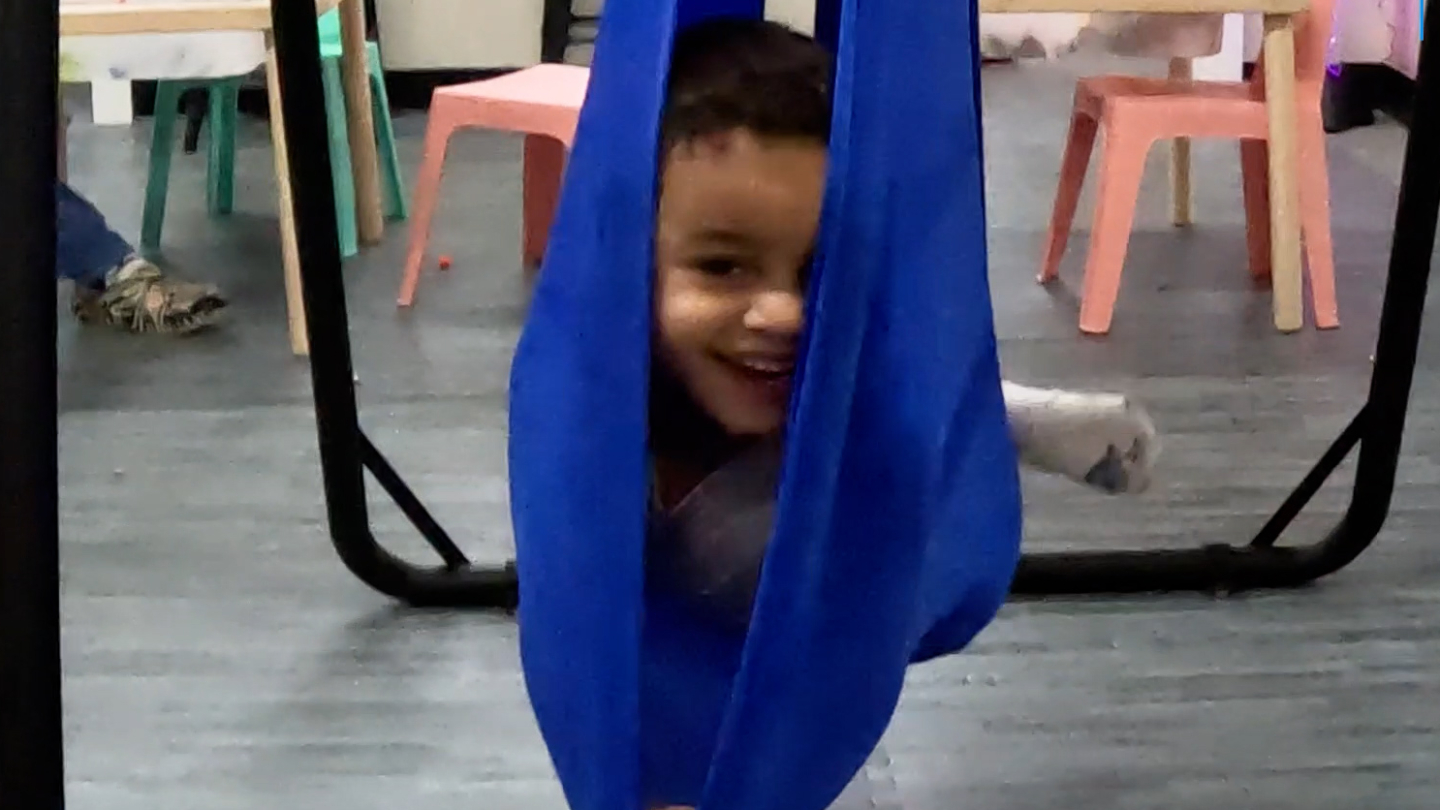Para leer in español, haz clic aquí.
"If you've met one child with autism, you've met one child with autism." This is a common sentiment in the community that describes the unique experience of each child on the spectrum and the idea that neurodiversity can be expressed in a very different way in every child.
WATCH ANYTIME FOR FREE
>Stream NBC10 Boston news for free, 24/7, wherever you are. |
"The concept of neurodivergent and neurotypical brain - that really allows us to understand the brain of someone with autism as basically a variation of the brain that you see usually," explains Edna Rodriguez, a clinical psychologist with Trinity Health of New England.
Rodriguez explains that autism can have three principal characteristics.
Get updates on what's happening in Boston to your inbox. Sign up for our >News Headlines newsletter.
Differences in socialization: which can manifest as difficulties with empathy, understanding the emotions of another person.
"Kids and children with and with autism or in the spectrum, are probably going to have some challenges starting conversations, staying interested when the topic is not really interesting to them. They can they might have issues with like processing or understanding sarcasm or metaphors," Rodriguez said. "Also the ability to spontaneously demonstrate empathy, which is a big deal for socialization.
Sensitive sensory processing: in many cases this concerns visual and auditory stimuli. Rodriguez explains that people on the autism spectrum sometimes have difficulty processing stimuli at the same speed as a neurotypical person, which can be overwhelming, causing confusion and anxiety in the child.
"At any given day, we can walk in a busy Boston street and, and be able to manage, the lights, the sounds, that all that comes with being in that busy and sometimes exciting situation. Right. But for someone in the, in the, in the spectrum, that can be incredibly overwhelming."
A need for routine: People on the spectrum can also respond differently when they break out of a routine with their daily lives, says Rodriguez. A lack of predictability can make a person anxious.
"They process information differently, at a different rate, at a different pace, in a different way."
There are interventions to help a child develop at their own pace, such as making adaptations to the environment and teaching techniques in schools, which are of vital importance for the development of a child on the spectrum.
"The more you can actually catch up to things and be savvy about it, and also the better chance that child has to really catch up to certain things and really learn about themselves and ways that they can cope with and now a neurotypical world, and also show their neurotypical, loved ones how to help them and make them more comfortable at home and in school," she said.
Rodriguez also explained that it's important to create a compassionate environment, where there is minimal stigma and where a child with autism can express their needs.
"It takes some consistency and therapeutic services, but they can learn some of those skills. And also we can learn to speak in a more, concise way, using less sarcasm, be more concrete in how we communicate. And that way we can have a better, more successful interaction with your peer, who is a neurodivergent person in the spectrum."
Teaching other children to understand neurodiversity is crucial to help children with autism, according to Rodriguez.
"Middle school and high school. We all know when we were in that age, the cliques that happened and now with social media and in all the differences in the new world that our are kids are living in, how much more difficult it can be to really, adjust and catch up to these social interactions, complex social interactions," she said.
A lack of understanding on the part of the makes children on the autism spectrum at greater risk of being victims of bullying when they enter middle and high school.
"It's important that schools and parents, talk about neurodiversity, how brains can be different, but they're still brains and there's nothing wrong. They're just brains that are different. And when we talk and teach that, I think we're creating a scenario for people to be more compassionate, kind, and understanding."
According to the CDC, some children can show symptoms of autism as early as a year old. Getting a diagnosis as early as possible is important to ensure they receive the services and support they need to reach their maximum potential.
"Early intervention is one of the best, ways to go to help people, in the spectrum, manage, their condition and also help them thrive and self-advocate," Rodriguez said.
Finally, she emphasized that people are not a condition or a diagnosis - the diagnosis is simply a part of the person.
"You are not your condition. You're not what makes you different. You are you. We are where we are. We're humans, we’re people."
You can find autism resources for families in Massachusetts here.
To learn more about early intervention centers in your area click here.



